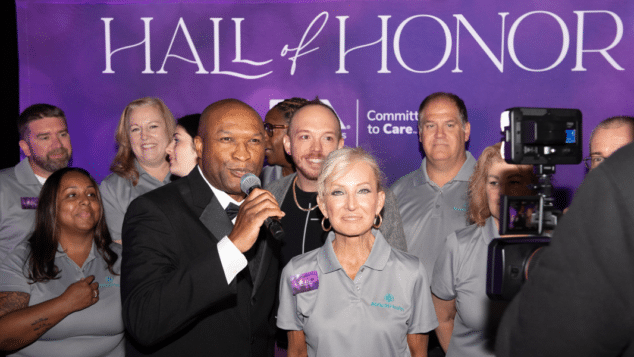The Rise of Virtual Events Has Been a Boon to Associations

After the pandemic hit, many associations quickly discovered the skills necessary to deliver successful virtual events. In the process, association leaders realized that they were able to attract new sponsors and new members who typically couldn’t attend in-person events due to scheduling or financial constraints. Plus, virtual offerings revealed an opportunity to generate even greater revenue than in-person events.
The American Brain Tumor Association (ABTA), the nation’s oldest nonprofit organization dedicated to brain tumor education, support and research, experienced this shift when it pivoted from an in-person to a virtual conference.
“It was an excellent conference,” says Ralph DeVitto, president and CEO, ABTA. He notes 600 people registered for the in-person event in 2019 while approximately 1,300 people registered for the virtual event last year.
The in-person conference typically attracted people who could drive to Chicago. But a virtual session created new opportunities: People from across the United States and 20 other countries attended the event. “For our community, going virtual was a great option,” DeVitto says. “Many members of the community are immunocompromised and often couldn’t attend the in-person event because they were undergoing treatment.”
Closing the Distance Gap
For the American College of Osteopathic Family Physicians (ACOFP), pivoting to a virtual event enabled many member physicians who live in rural areas and are challenged with transportation issues to participate.
“We tapped into a segment of our membership that had never come to our programs before,” says ACOFP Executive Director Bob Moore, MA, CAE. “We learned that a lot of our attendees had never traveled to the in-person event due to transportation issues, including living far from airports.”
ACOFP’s 2019 in-person program had 1,819 attendees. In 2020, ACOFP’s virtual program, which included both “live” and on-demand registration, reached 2,086. This year, registration swelled to 2,804.
While Moore is still talking with his team about the exact look of the next conference, the plan for now is to offer a hybrid event. “We knew in March 2020 there was no going back — we would have to provide both an in-person and a virtual conference, so we would not alienate an important side of our membership,” Moore says.
Sponsor Impact
Some associations have already begun to see their relationships with sponsors strengthen in terms of revenue and engagement, while others are looking ahead at how to leverage the expanded reach with sponsors.
For ABTA, the last in-person event in 2019 resulted in 17 sponsors generating $45,750 in revenue. In 2021, 27 sponsors generated $179,750 in revenue.
ABTA leaders were concerned their sponsors would not find value in virtual meetings. “Our team came together, and we thought about it through the lens of the sponsor,” DeVitto says. “We had to think, ‘how do we continue to get eyeballs on our sponsors?’ So, we wove the sponsors into sessions.”
Many of ABTA’s sponsors include biotech companies showcasing breakthrough treatments and research. Novocure, for instance, showcased a device in 2019 and still returned as a sponsor in 2021. “Many sponsors missed the in-person event but realized the added number of people [at the virtual event] meant being exposed to a much broader audience,” he says.
Association leaders are looking ahead and anticipating how the expanded reach will benefit sponsors and generate revenue for the association. However, leaders recognize the need to create and encourage interactive engagement.
Sponsoring association meetings is a primary tactic for Procter & Gamble (P&G) to reach one of its target audiences, dental professionals. “Although the reach can be better for virtual meetings, we tend to get lower foot traffic at virtual booths,” says Beth Jordan, RDH, MS, Procter & Gamble Professional & Scientific Relations. “Unfortunately, there is limited human interaction taking place, minimizing our ability to build relationships.”
According to Jordan, P&G partners with associations to find creative solutions to engage with members at virtual events. “Our goal is to get to a place where we get the same amount of support as in-person events,” she says. “We want our partner associations to know that we want to support them, but we need to see the ROI.”
Associations that have reached out to P&G to brainstorm on a joint business plan have been able to derive the most support. The two organizations work together to identify goals, which has led to mutually beneficial outcomes that are not necessarily traditional sponsorship packages.
“When we [do a] joint business plan with an association, it’s important to identify mutual goals to work toward — whether it is developing educational content for members, hosting a speaker at a webinar event or authoring articles for their trade journals,” Jordan says.
Technology is imperative to reaching people during these times. Procter & Gamble developed a Virtual P&G LifeLab, an interactive platform that was used for the Consumer Electronics Show. The virtual platform allowed P&G to interact with attendees via an avatar that could “walk” up to visitors, engage with them and show the visitors the products in real-time.
It’s uncertain if all virtual events will be revenue generators. But, with careful planning and attention to both the member and sponsor experience, your group can explore new ways to make money from events.
The report found that two-thirds of marketers say their firms are struggling to achieve the same success from virtual events that they would from in-person events. Yet, more than 80% said that they could achieve the same or greater success if they made improvements to their strategies. Below are some findings from the report.
Challenges with hosting virtual/hybrid events
- 71% said it was very challenging to make virtual/hybrid events resemble all the interactive, human-to-human elements of an on-site event.
- 67% of marketers said it was very challenging to bring products, services and stories to life in a compelling format on digital event platforms.
- 64% of marketers said it is very challenging to effectively isolate the most engaged leads to improve sales performance after the event.
Opportunities for virtual/hybrid events
- Greater flexibility for audience to attend multiple sessions.
- Better event analytics.
- Increased attendance/reaching a segment of attendees who are unable to travel.
- Better pre-event planning.
- Deeper social networking among attendees.
- Easier post-event follow-up engagement.
- More breakout sessions.
Tags
Related Articles
Double Your Footprint: Enhancing Conferences with a Hybrid Event Workflow
By combining on-site engagement with a digital experience, hybrid events can attract diverse audiences, boost...
The Emergency Nurses Association Utilizes Design Thinking to Reimagine its Awards Ceremony
In a prime example of intrapreneurship, the ENA utilized design thinking to innovate within the...
Report Reveals Strategies to Overcome Membership Decline
McKinley Advisors’ Membership Reset report provides a roadmap that association leaders can use to refocus...




